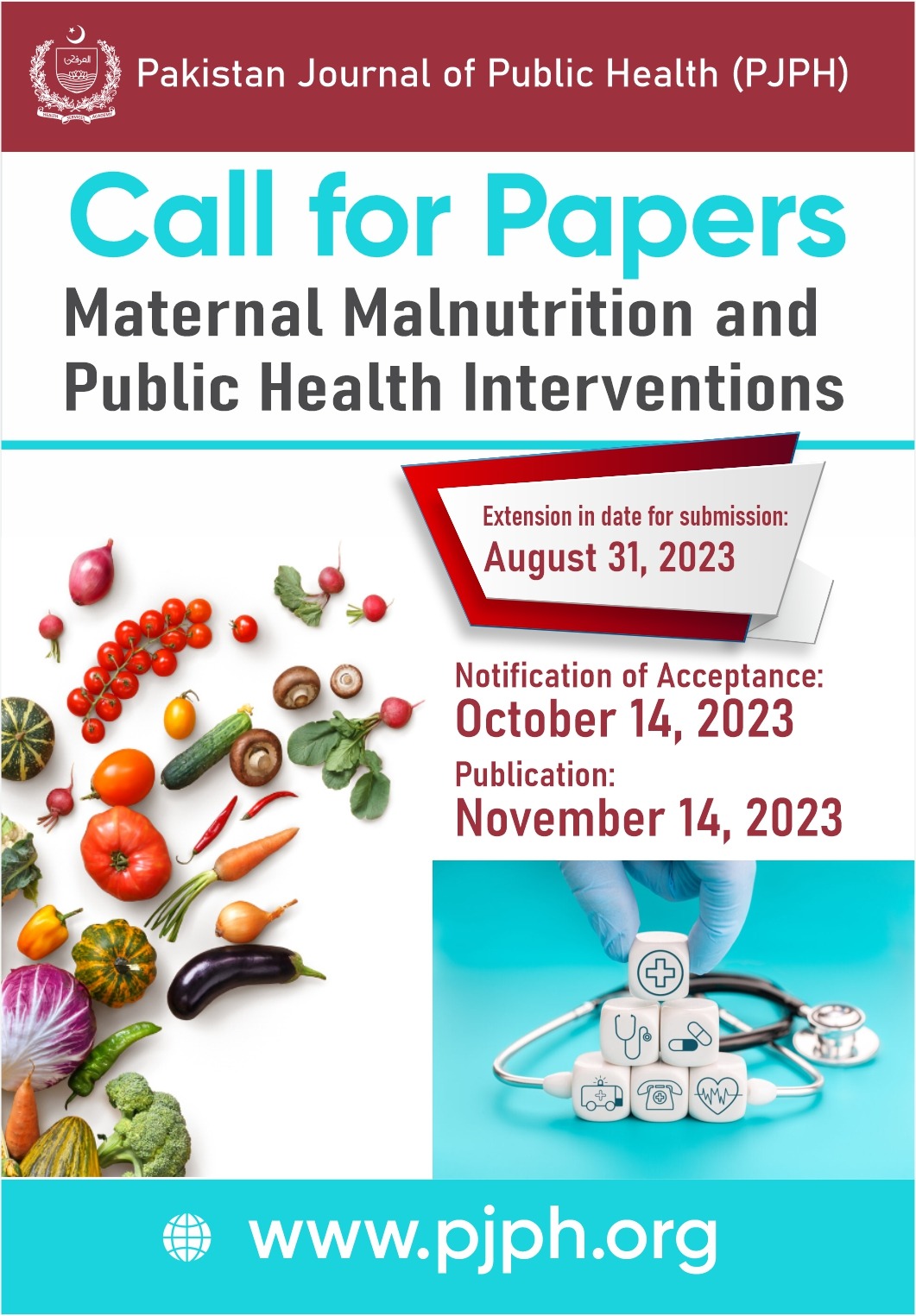Assessment of Health Promoting Lifestyle Behaviors of Students at the University of Malakand, Khyber Pakhtunkhwa Pakistan: A Quantitative Approach
DOI:
https://doi.org/10.32413/pjph.v10i3.502Keywords:
Health promoting lifestyle, behavior, university students, gender health, PakistanAbstract
Background: Health promoting lifestyle behaviors are important to achieve good health and wellbeing especially for young adults. The university setting is where students can be exposed to positive and negative lifestyle activities. The aim of this study was to ascertain the level of involvement in health promoting lifestyle behaviors by the students attending the University of Malakand, Khyber Pakhtunkhwa, Pakistan.
Methods: An analytical cross-sectional quantitative approach was utilized to survey university students. Data was collected from 308 male and female university students through a modified and validated questionnaire on “Health- Promoting Lifestyle Profile II”. Institutional ethical approval was obtained. Data was analyzed with the Statistical Package for Social Sciences (SPSS) version 19.0.
Results: The main findings revealed that the mean (SD) health promoting lifestyle behaviors score was 2.48 (+0.3) for all the study participants. Female students had a better overall health promoting behavior as compared to male students and the former were more health responsible (mean score 1.97 (+ 0.5) as compared to their male counterparts (mean score 1.79 + 0.4), this difference was statistically significant (p=0.002). Male students were more physically active mean (SD) 2.20 (+ 0.5) than female students mean (SD) score 2.03 (+ 0.4), and difference was statistically significant (p=.006).
Conclusion: Overall health promoting lifestyle behaviors of students from the University of Malakand were low irrespective of gender. Male students were physically more active whereas female students were more health responsible. It is recommended that relevant stakeholders work in collaboration with students to develop HPL behavior policies and implement interventions to promote healthy lifestyle behavior within national university settings.
Downloads
Published
Issue
Section
License
Copyright (c) 2021 Pakistan Journal of Public Health

This work is licensed under a Creative Commons Attribution-NonCommercial 4.0 International License.






